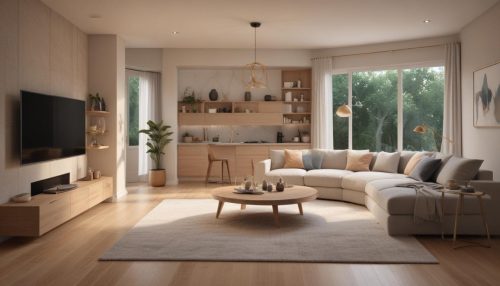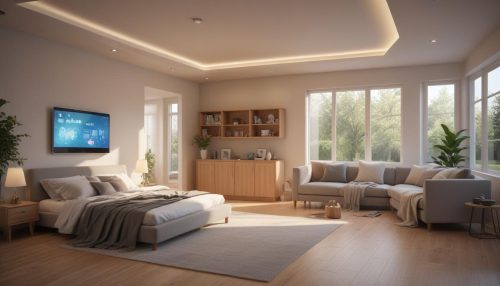How Reducing Clutter at Home Increases Mental Peace
Olivia Morgan August 4, 2025
Can simply clearing your closet really improve your mental health? According to science, yes. More people than ever are discovering that when you reduce home clutter, you make serious room for mental peace. With stress and anxiety on the rise globally, decluttering is no longer just a design trend—it’s a wellness essential.

1. The Mental Toll of a Messy Home
Clutter isn’t just visual chaos—it’s psychological noise. Research from UCLA reveals that mothers who describe their homes as cluttered experience consistently elevated levels of cortisol, the primary stress hormone (Saxbe and Repetti 2010). That means your untidy kitchen counter or overflowing junk drawer might be spiking your stress hormones without you realizing it.
In the same vein, the “Life at Home in the Twenty-First Century” study from UCLA tracked 32 middle-class families and found a strong link between high volumes of household possessions and increased levels of stress and depression (UCLA Center on Everyday Lives of Families 2012). The findings were clear: more stuff, more stress.
2. Why Clutter Triggers Anxiety and Fatigue
From a neurological perspective, clutter bombards our senses with excessive stimuli, making our brains work overtime. Constant visual reminders of disorganization drain our cognitive resources and reduce our ability to focus, according to McMains and Kastner (2011).
That brain fatigue can manifest physically too—chronic disorganization is frequently associated with insomnia, overeating, and reduced physical activity. So, the chaos in your environment could be subtly sabotaging your overall well-being.
3. The Minimalist Movement: From Aesthetic to Essential
Minimalism has exploded from Instagram trend to a lifestyle doctrine—and for good reason. The principle of “less is more” isn’t just about white walls and modern furniture. It’s a response to the psychological weight of excess.
People are gravitating towards minimalist living because it reduces decision fatigue and gives them a sense of control. Minimalist homes have been shown to support emotional clarity and productivity (Fujita et al. 2013).
It’s not about having nothing. It’s about having only what you need—what adds value. When you reduce home clutter, you make emotional room for peace.
4. The Hidden Burden of “Just in Case” Items
A common roadblock in decluttering is the “what if I need this later?” mindset. This scarcity-based thinking makes us hoard items that serve no present purpose.
But studies in consumer behavior show that holding on to items “just in case” often stems from anxiety, not practicality (Cherrier and Murray 2007). In truth, 80% of what we save for “someday” is never used. The emotional cost of this clutter is far higher than the financial cost of replacing it, if ever needed.
5. Actionable Decluttering Techniques That Actually Work
Here are five techniques backed by psychology that can help you reduce home clutter without getting overwhelmed:
- The 20/20 Rule: If you can replace it in 20 minutes for under $20, let it go.
- One-In, One-Out Rule: For every item you bring home, remove one. This keeps the accumulation in check.
- Decluttering Zones: Break down your home into zones—kitchen, bathroom, closet—and declutter one at a time.
- The 12-12-12 Challenge: Find 12 items to donate, 12 to throw away, and 12 to put back in their place.
- The Box Method: Pack items in a box. If you don’t reach for them in 30 days, donate them without opening the box.
These small strategies remove the emotional friction of letting go and create visible progress.
6. Don’t Forget Digital Clutter
Digital clutter has emerged as a silent stressor. Overflowing inboxes, scattered files, and notification overload all contribute to mental fatigue. Decluttering your digital environment can significantly improve your focus and productivity.
Try these steps:
- Inbox Zero: Archive or delete emails older than 30 days unless essential.
- App Detox: Remove apps you haven’t used in a month.
- Folder Organization: Group files by category—Photos, Work, Personal—and store them in the cloud.
- Turn Off Notifications: For non-essential apps to reduce constant interruptions.
Digital minimalism, as popularized by Cal Newport, is now a wellness practice in its own right.
7. Emotional Resistance: The Sentimental Trap
We often hold onto items not because we use them—but because they hold memories. But memory and material are not the same.
Experts recommend taking photos of sentimental objects before letting them go. This preserves the memory while releasing the item. For items that spark guilt or obligation (gifts, inherited trinkets), ask: “Would I buy this today?” If not, it doesn’t belong in your life.
Letting go isn’t about loss—it’s about choosing peace over possession.
8. Immediate Mental Health Benefits of Decluttering
The good news? You don’t have to wait months to feel better. Most people feel the mental benefits of decluttering immediately.
In a 2020 survey by Boden, 60% of participants said they felt calmer and slept better after organizing their space (Boden 2020). Other studies have shown a decrease in anxiety, increased energy levels, and improved mood after decluttering.
These effects are not just psychological—they’re neurochemical. A clear space gives your brain the signal that it can relax, breathe, and focus.
9. Decluttering as a Lifestyle: Not a One-Time Event
The biggest mistake people make is treating decluttering as a one-off project. In reality, it’s a habit—a mindset shift. You have to build regular decluttering into your lifestyle to maintain results.
Tips for sustainable success:
- Declutter seasonally (e.g., at the start of every quarter).
- Keep a donation box accessible at all times.
- Reflect regularly: “What am I tolerating in my environment?”
Reducing home clutter isn’t just about cleaning. It’s about self-respect, mental clarity, and emotional relief.
Conclusion: Choose Less for More Peace
It’s simple but powerful: reduce home clutter to invite mental peace. You don’t need to become a full minimalist to feel the benefits. Just take the first step. One drawer. One surface. One bag.
Every item you remove is one less weight on your mind. Clear the clutter. Feel the shift. And finally—give your brain the rest it deserves.
References:
- Saxbe, D. E., & Repetti, R. L. (2010). No Place Like Home: Home Tours Correlate With Daily Patterns of Mood and Cortisol. Available at: https://journals.sagepub.com (Accessed: 4 August 2025).
- Arnold, J. E., Graesch, A. P., Ragazzini, E., & Ochs, E. (2012). Life at Home in the Twenty-First Century: 32 Families Open Their Doors. Available at: https://anthro.ucla.edu (Accessed: 4 August 2025).
- Center on Everyday Lives of Families (CELF), UCLA (2012). Researchers’ overview of Life at Home in the Twenty-First Century project. Available at: https://anthro.ucla.edu (Accessed: 4 August 2025).





